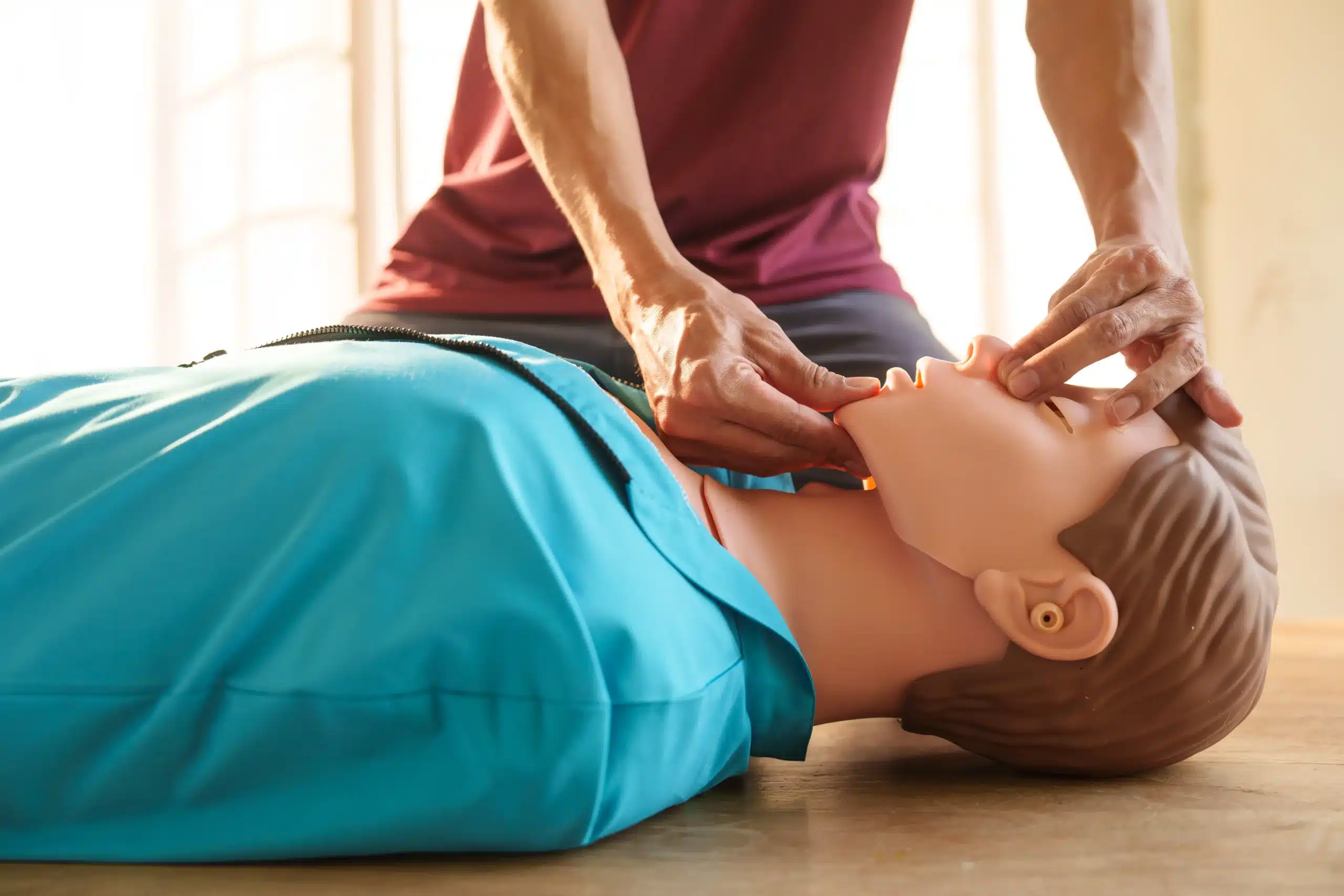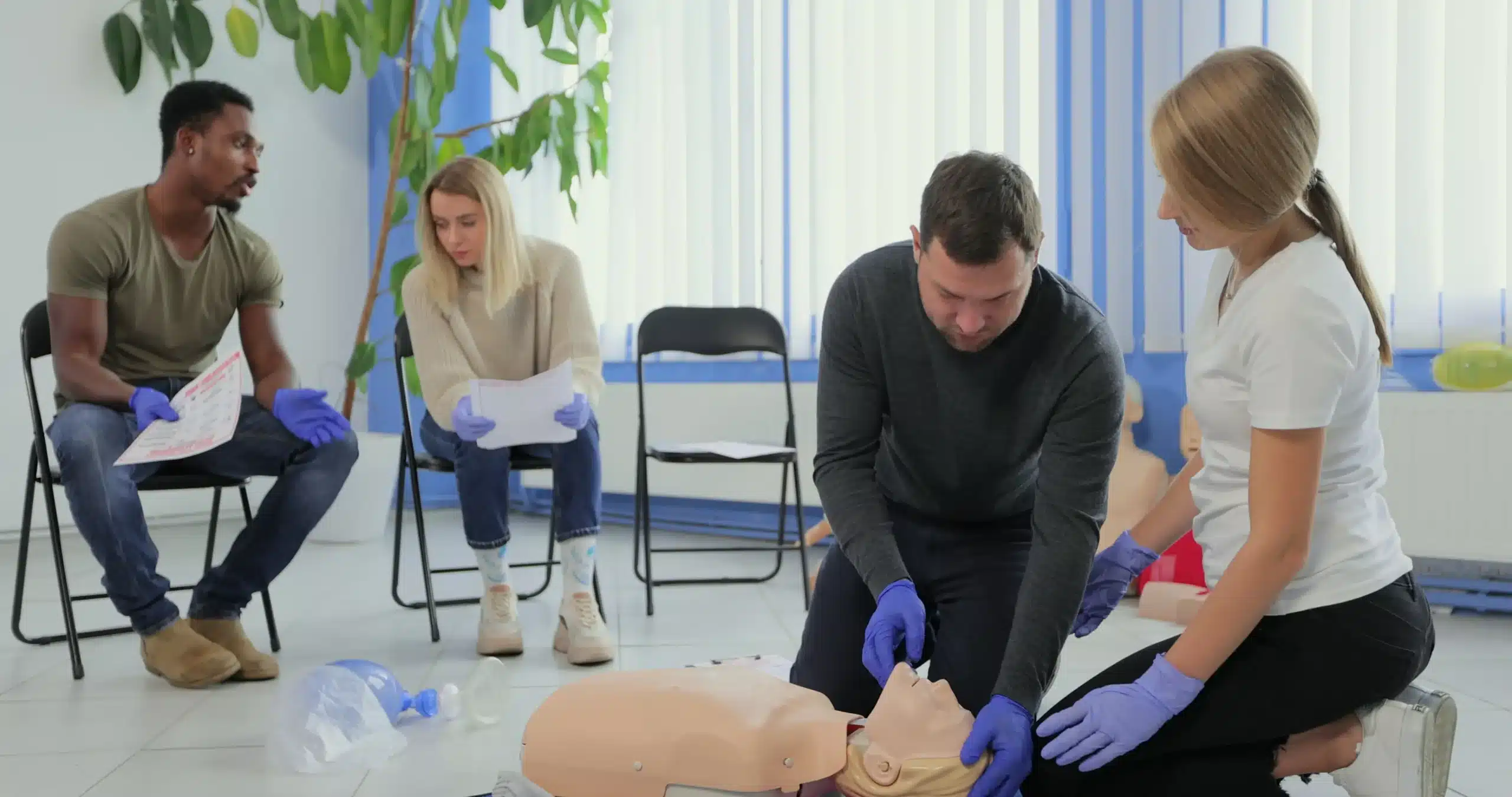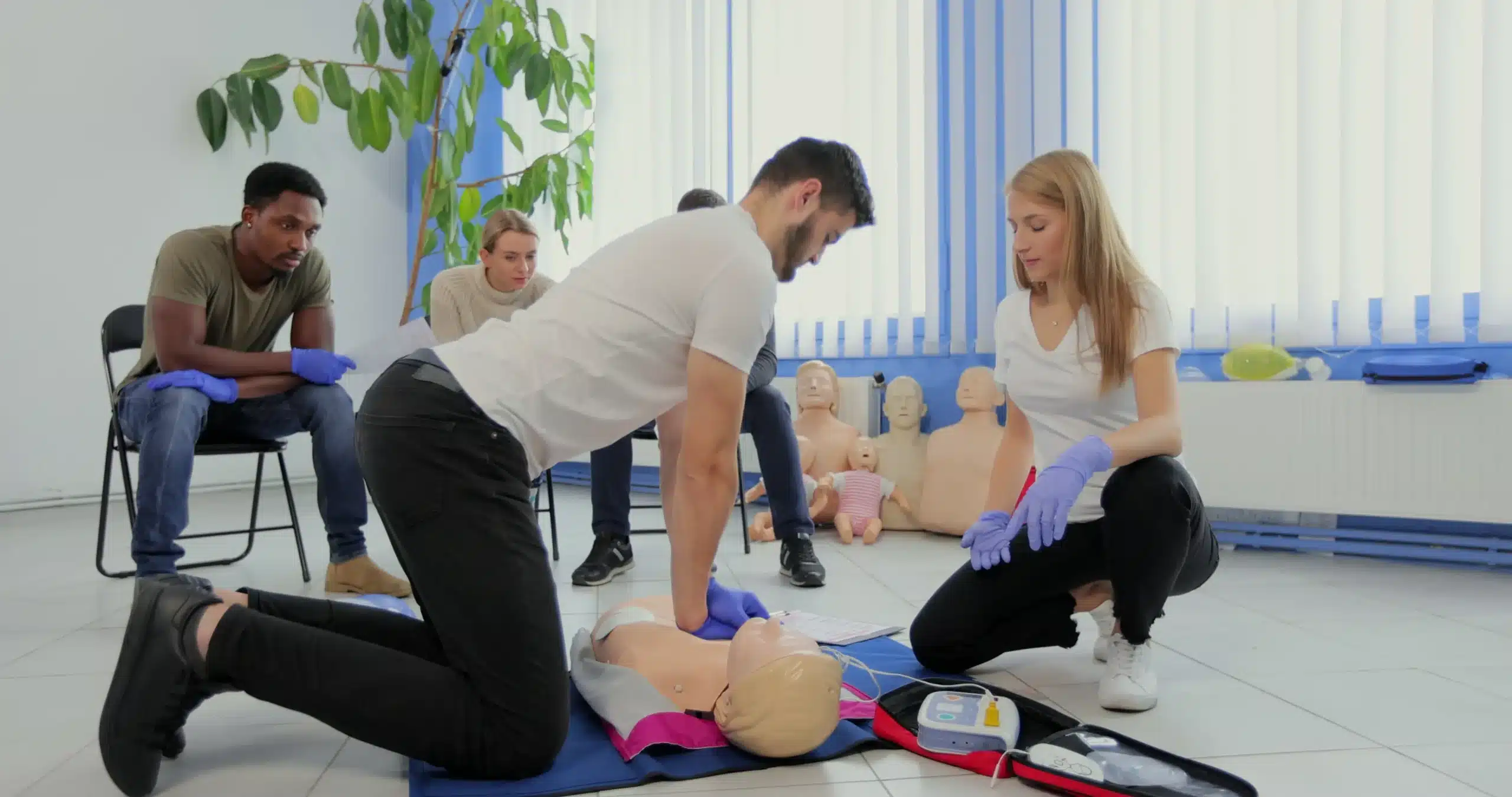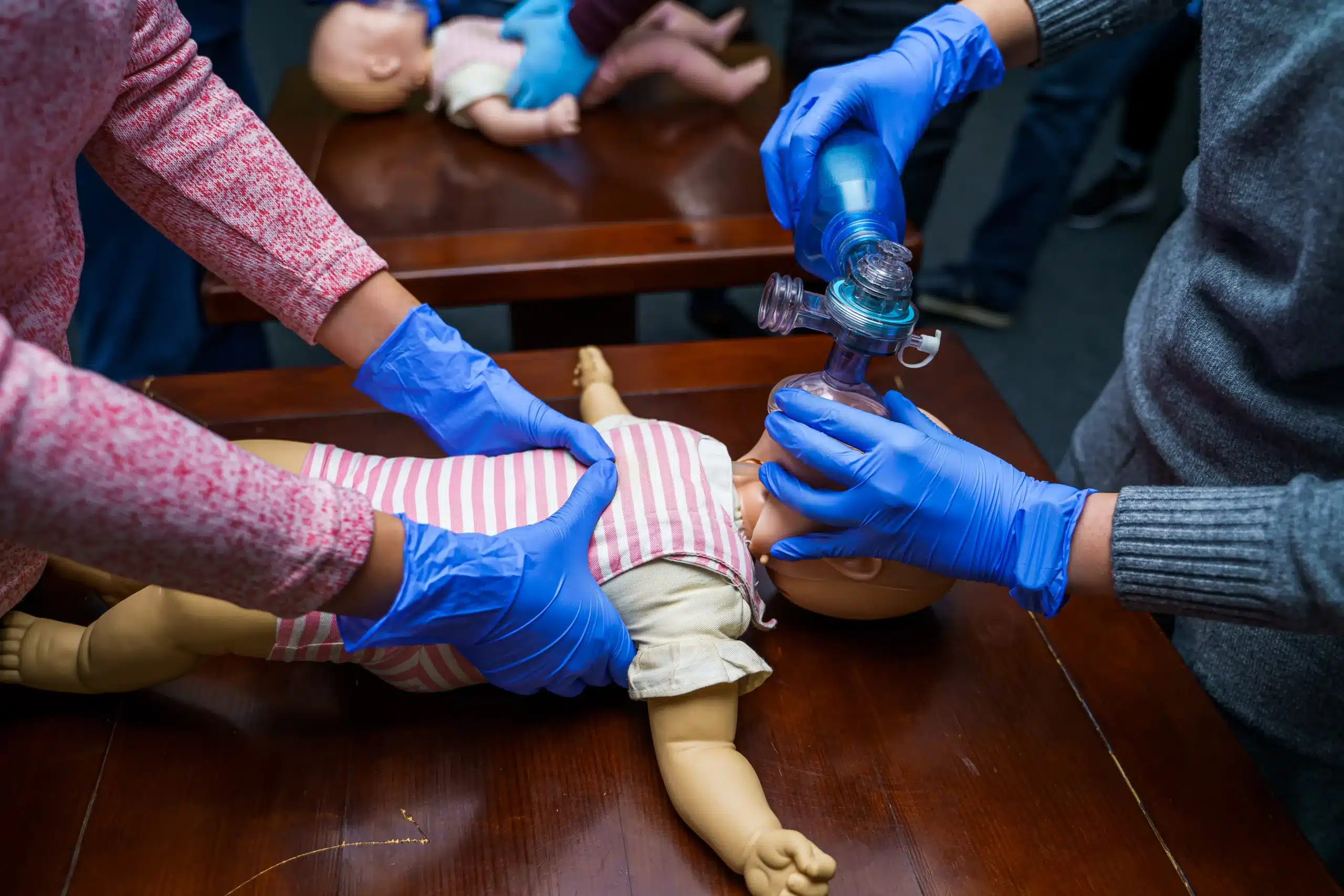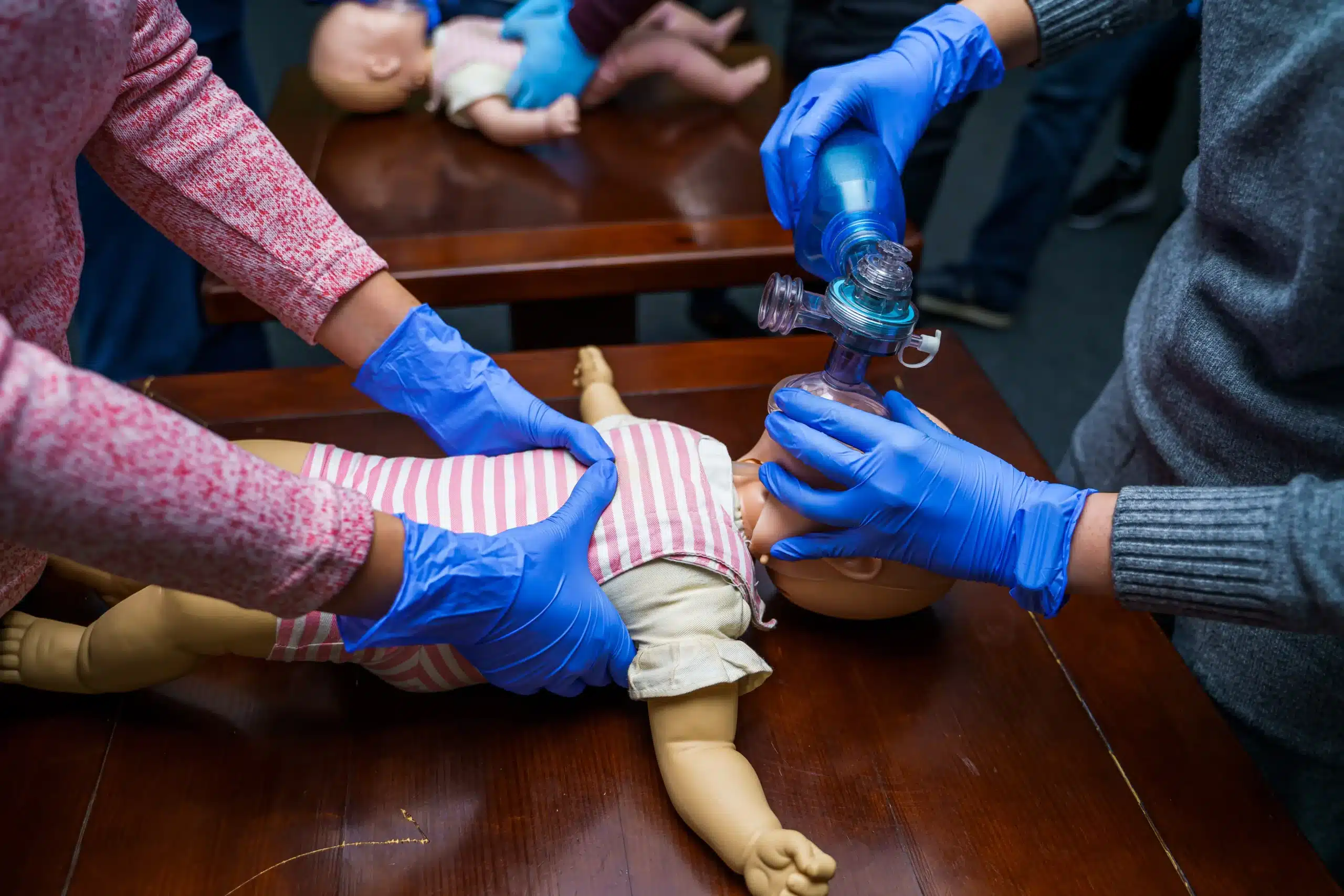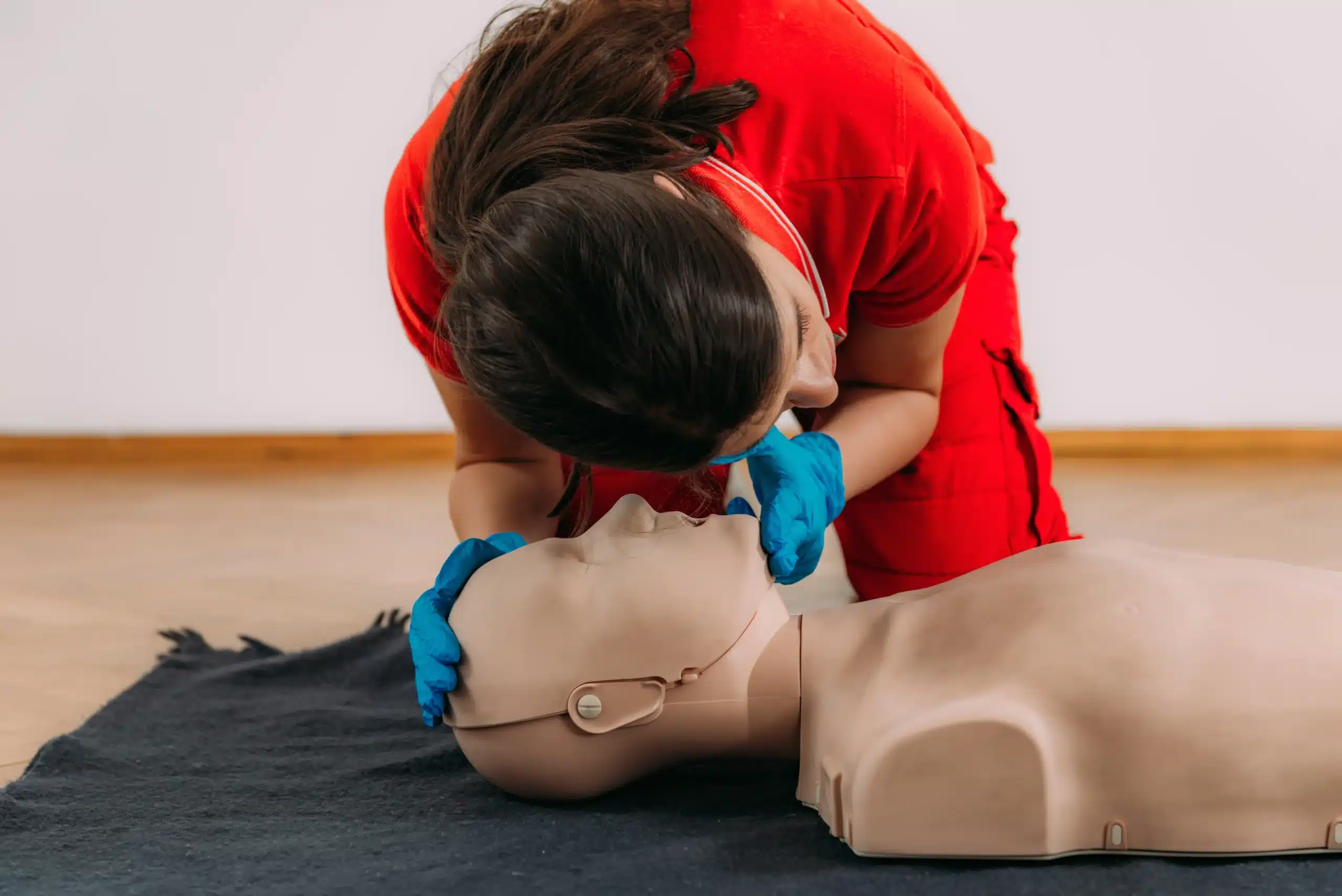Working in healthcare, especially with children, requires constant learning and a commitment to staying updated with the latest life-saving techniques. Pediatric Advanced Life Support (PALS) training is a crucial component of this ongoing education. This article provides a comprehensive overview of pediatric advanced life support in Merced, covering everything from course content and prerequisites to the benefits of certification and how PALS is applied in real-world scenarios. We’ll also discuss local training options and address common misconceptions about PALS, ensuring you have the information you need to make informed decisions about your professional development.
Key Takeaways
- PALS certification equips you with advanced life-saving skills: It builds upon basic CPR, focusing on the specific needs of infants and children during emergencies. Learn essential techniques like airway management, breathing support, and recognizing critical pediatric conditions.
- Find a PALS course that fits your needs: Consider factors like flexible scheduling, blended learning options, instructor experience, and cost. Look for AHA-certified courses and explore continuing education opportunities.
- Stay current with PALS guidelines: Renew your certification every two years and seek out resources to maintain your skills and knowledge. This ensures you’re always prepared to provide the best possible care in pediatric emergencies.
What is Pediatric Advanced Life Support (PALS)?
Pediatric Advanced Life Support (PALS) certification is a specialized program designed for healthcare providers who treat infants and children. Think of it as advanced training beyond basic CPR. It equips professionals with the knowledge and skills to respond effectively to life-threatening emergencies in young patients. PALS certification is a critical qualification for healthcare providers working with children.
Key PALS Training Components
PALS courses are comprehensive, covering a range of topics based on the latest American Heart Association (AHA) guidelines. You’ll learn effective CPR techniques specifically for infants and children, including airway management and breathing support. The training also emphasizes recognizing and responding to various pediatric emergencies, from respiratory distress to cardiac arrest. A key component of PALS is developing strong team dynamics, ensuring seamless teamwork during a crisis. This includes clear communication strategies and defined roles within the resuscitation team. PALS training covers treatment algorithms, team dynamics, effective resuscitation, and pediatric assessment.
Importance of PALS in Pediatric Emergencies
PALS training is vital for improving the quality of care for children during medical emergencies. It empowers healthcare professionals to confidently assess, stabilize, and treat young patients facing life-threatening situations. By mastering PALS techniques, providers can significantly increase the chances of positive outcomes. PALS training helps healthcare professionals improve their skills and provide high-quality care to pediatric patients. For nurses, PALS certification demonstrates a commitment to pediatric care, earning respect among peers and healthcare organizations. PALS training is crucial for equipping healthcare providers with the skills to manage pediatric emergencies.
Find PALS Training in Merced
Looking for PALS training in Merced? You have several options, each with different schedules, costs, and course structures. Here’s a breakdown of local providers to help you find the right fit.
Merced CPR Classes
Merced CPR Classes offers the American Heart Association (AHA) PALS certification in a convenient blended learning format. This involves an online portion taking three to four hours, followed by a short in-person skills check, about 30–40 minutes. The total cost is $290, covering the online course, skills testing, and your PALS provider card. With classes offered daily, Monday through Sunday, between 7 am and 6 pm, they provide flexibility for busy schedules. Merced CPR Classes also highlights its low price guarantee, matching competitor pricing in Northern California.
First Lady Permanente
First Lady Permanente offers two-day AHA PALS courses in Turlock, Merced, and Modesto. Their course costs $225, with an added $65 fee if you need a textbook. This training grants 12 Continuing Education (CE) units approved by the California Board of Nursing. The initial course takes 14 hours and 10 minutes, and your certification is valid for two years.
Other Local Providers
You can explore PALS training through other providers like Safety Training Seminars in Merced. They offer various AHA courses, including CPR, BLS, ACLS, PALS, and First Aid. Located in Merced, they focus on equipping people with essential life-saving skills. Contacting them directly is the best way to learn more about their PALS course details.
Understand PALS Course Structure and Costs in Merced
PALS certification in Merced offers a flexible, blended learning format. This combines online coursework with in-person skills testing, allowing you to learn at your own speed and then demonstrate your abilities in a practical setting.
Blended Learning Approach
Merced PALS courses use a blended learning model. This means you’ll complete the theoretical portion online at your convenience before a short in-person skills session. This structure is ideal for busy professionals and parents needing to fit training around existing schedules. The in-person component ensures you get hands-on practice with experienced instructors. Learn more about our PALS courses in Merced.
Online Component and In-Person Skills Testing
The online component typically takes about 3–4 hours. You’ll work through interactive modules, case studies, and practice scenarios to build a solid understanding of pediatric emergency care. After finishing the online portion, you’ll schedule a brief in-person skills testing session, lasting around 30–40 minutes. This allows you to demonstrate your proficiency in essential PALS techniques under the guidance of a certified instructor. Review our course prep materials to get a head start.
Time Commitment
The total time commitment for PALS certification is manageable. The online portion requires 3–4 hours of focused study, and the in-person skills test adds another 30–40 minutes. This streamlined approach ensures comprehensive training without a significant time investment. We also offer group discounts for workplaces or groups certifying together.
Cost Breakdown
The total cost for the PALS certification course in Merced is $290. This covers both the online and in-person components, as well as your certification card upon successful completion. We’re committed to providing affordable, high-quality training, and our low price guarantee ensures you’re getting the best value.
PALS Training Prerequisites and Eligibility
Before you sign up for Pediatric Advanced Life Support (PALS) training, it’s important to understand the requirements. Knowing the prerequisites will help you prepare and ensure a smooth enrollment process. This section clarifies who can take PALS training and what certifications you’ll need.
Required Certifications
The most important prerequisite for PALS training is a current American Heart Association (AHA) Basic Life Support for Healthcare Providers (BLS) certification. This foundational course equips healthcare professionals with essential CPR skills and is a mandatory stepping stone to more advanced training like PALS. You can find BLS provider courses on the American Heart Association website. If you’re renewing an existing PALS certification, you’ll need to show proof of both a current AHA PALS card and a current AHA BLS card. This ensures your skills are up-to-date and you’re ready to build upon your existing knowledge.
Professional Background
PALS certification is tailored for healthcare providers who regularly work with infants and children. Think nurses, paramedics, respiratory therapists, and other medical personnel who might encounter pediatric emergencies. The PALS course provides the advanced knowledge and skills needed to respond effectively in these critical situations. While doctors often hold PALS certification, it isn’t exclusively for physicians. Any healthcare professional involved in the care of critically ill or injured children will benefit from the specialized training PALS provides.
Learn Key Course Content and Expectations
This section outlines what you can expect to learn in a Pediatric Advanced Life Support (PALS) course and how the training is delivered. Understanding the course content and structure will help you prepare and make the most of your learning experience.
Key Topics Covered
The PALS certification course covers essential, updated techniques based on the 2015 American Heart Association (AHA) guidelines. You’ll learn CPR techniques for children and infants, covering both single-rescuer and two-rescuer scenarios. The course also addresses managing respiratory emergencies, rhythm disturbances, and electrical therapy. You’ll also learn about vascular access and effective resuscitation team dynamics. For a more detailed look at PALS content, you can refer to resources like this PALS overview.
Hands-On Practice and Simulations
PALS courses aren’t just lectures. They’re designed to be interactive and practical, led by qualified instructors in a classroom setting. The curriculum incorporates simulated pediatric emergencies, giving you a chance to practice your skills realistically. This hands-on training at places like Merced CPR Classes, including interactive lectures, practice sessions, and realistic simulations, ensures you gain both the knowledge and practical experience to respond effectively in critical situations. This approach builds confidence and competence in managing real-world pediatric emergencies.
Benefits of PALS Certification
Earning your PALS certification offers significant advantages, from improved patient care to career advancement. Let’s explore some key benefits:
Improve Pediatric Emergency Care Skills
PALS certification equips healthcare providers with the specialized knowledge and skills to effectively manage pediatric emergencies. The training emphasizes the physiological differences between children and adults, enabling you to confidently assess and treat young patients in critical situations. This targeted training focuses on the distinct needs of infants and children, going beyond the scope of basic CPR. You’ll learn practical techniques and evidence-based protocols to deliver high-quality care during life-threatening events. This specialized PALS knowledge can make a crucial difference in positive patient outcomes.
Advance Your Career
Holding a PALS certification demonstrates your commitment to providing exceptional care to pediatric patients. It’s a valuable credential that can open doors to new opportunities and enhance your career trajectory. PALS certification is often a requirement for positions in emergency departments, critical care units, and other specialized pediatric settings. It signals to employers your dedication to advanced training and expertise in pediatric care. This can lead to increased job prospects, promotions, and greater professional recognition. Whether you’re a nurse, doctor, or other healthcare professional, PALS certification can significantly advance your career.
Enhance Team Coordination
PALS training not only enhances individual skills but also fosters effective teamwork during pediatric emergencies. The course emphasizes clear communication, structured protocols, and coordinated roles within a resuscitation team. This shared understanding of best practices ensures everyone works together seamlessly, minimizing errors and maximizing the chances of a successful outcome. PALS certification provides a common framework for response, enabling teams to quickly assess, stabilize, and treat pediatric patients in crisis situations. This improved team coordination ultimately leads to better patient care and a more efficient emergency response.
Maintain Your PALS Certification
Keeping your PALS skills sharp is crucial for providing the best possible care. This section covers how to renew your certification and stay current with the latest guidelines.
Renewal Process
Your PALS certification is valid for two years. To renew, you’ll need to complete a PALS renewal course before it expires. These courses typically last one day and cover essential skills and updates. Expect to present your current AHA PALS and BLS provider cards as prerequisites. Many providers, like First Lady Permanente, offer PALS renewal courses, often including continuing education (CE) units accepted by licensing boards. Check with your chosen provider for specific requirements and CE offerings. Renewal courses usually cost around $185, but confirming pricing during registration is always wise. Merced CPR Classes also offers various AHA certification courses, making it a convenient option for local professionals.
Stay Updated with Latest Guidelines
Beyond the renewal course, staying informed about the latest PALS guidelines is essential for effective pediatric care. The AHA regularly updates its guidelines, reflecting advances in resuscitation science and best practices. Regularly reviewing these updates and incorporating them into your practice ensures you’re prepared to handle any pediatric emergency. Look for resources and continuing education opportunities that cover these updates to maintain your proficiency. Many PALS courses emphasize hands-on practice and simulations, reinforcing teamwork and communication skills vital in emergency situations. By staying current with guidelines and practicing your skills, you’ll be well-equipped to provide the highest quality care. Consider exploring resources like the Course Prep section on the Merced CPR Classes website to further enhance your knowledge and preparedness.
Common PALS Training Misconceptions
It’s easy to get confused about PALS training, especially if you’re new to the field. Let’s clear up a few common misconceptions.
Who Needs PALS Certification?
One common misconception is that only doctors and nurses need PALS certification. While it’s definitely important for them, PALS training benefits anyone regularly interacting with children and infants. This includes paramedics, emergency medical technicians (EMTs), respiratory therapists, and even childcare providers. Anyone who might encounter a pediatric emergency can develop essential, life-saving skills with this training.
PALS vs. BLS
Many people also think PALS and Basic Life Support (BLS) certification are the same. BLS provides foundational life-saving skills, but PALS builds upon that foundation with more advanced knowledge and techniques specifically designed for pediatric emergencies. Think of BLS as the first step and PALS as the next level of preparedness.
Validity of Online Courses
Finally, there’s sometimes hesitation about the validity of online PALS courses. Many accredited organizations, including the American Heart Association, offer high-quality online PALS courses that meet the same standards as in-person training. These courses often use a blended learning approach, combining online modules with in-person skills sessions for comprehensive, practical training. Check with your chosen provider to understand their specific course structure. If you’re looking for convenient and flexible training, an online or blended learning course might be a great fit.
Choose the Right PALS Provider in Merced
Finding the right PALS provider is crucial for a positive and effective learning experience. Consider these factors when making your decision:
Factors to Consider
- Course Availability and Schedule: Life gets busy, so finding a course that fits your schedule is essential. Look for providers with flexible scheduling options, including weekend and evening classes. Merced CPR Classes offers PALS classes seven days a week, from 7 am to 6 pm.
- Course Format: Do you prefer a traditional classroom setting or a blended learning approach? Many providers now offer online learning combined with in-person skills sessions. This hybrid format lets you complete the coursework at your own pace, then demonstrate your skills in person.
- Certification Validity: Ensure your chosen provider offers American Heart Association (AHA) certified courses. AHA PALS certification is valid for two years. Knowing this helps you plan for recertification.
- Instructor Qualifications: Experienced, certified instructors are key. Look for providers with a strong track record and instructors passionate about pediatric care. A quality instructor can provide valuable insights and guidance.
Compare Course Features
Once you’ve identified a few potential providers, compare these course features:
- Course Length and Structure: PALS courses typically involve online learning and in-person skills testing. Consider the overall time commitment. First Lady Permanente offers initial courses lasting 14 hours and 10 minutes (plus breaks) and renewal courses lasting 8 hours and 20 minutes (plus breaks).
- Cost Comparison: Training costs vary, so compare pricing. Look for providers with competitive rates and transparent pricing. Merced CPR Classes offers a comprehensive PALS course (online modules, skills testing, and certification) for $290.
- Continuing Education Units: If you’re a healthcare professional, check if the course offers continuing education (CE) units. These units can be valuable for maintaining your licenses and certifications.
- Hands-On Training: Practical, hands-on training is essential for PALS skills. Look for courses emphasizing simulations and scenarios. First Lady Permanente’s PALS training uses a hands-on approach with simulations.
Apply PALS in Healthcare Settings
PALS certification goes beyond the classroom—it empowers healthcare providers to confidently handle pediatric emergencies. Let’s explore how PALS translates into real-world action.
Emergency Response Scenarios
Imagine a child experiencing respiratory distress. A PALS-certified nurse can quickly assess the situation, administer oxygen, and initiate advanced airway management. This rapid response, guided by their PALS training, can stabilize the child and prevent further complications. Or, picture a child arriving at the emergency room with a suspected arrhythmia. PALS-trained professionals can swiftly interpret the heart rhythm, administer appropriate medications, and coordinate life support interventions. PALS training helps healthcare professionals improve their skills and provide high-quality care to pediatric patients, as this article highlights. It equips them to act decisively and confidently in time-sensitive situations, ultimately increasing the chances of positive outcomes. This blog post further emphasizes PALS’ vital role in pediatric care.
Recognize Critical Pediatric Conditions
PALS equips providers with the skills to recognize and manage various critical pediatric conditions. From the subtle signs of shock to the symptoms of a severe allergic reaction, PALS training provides the foundation for prompt diagnosis and treatment. For instance, a PALS-certified provider can quickly differentiate between croup and epiglottitis—two respiratory conditions with vastly different treatment approaches. This ability to distinguish between similar yet distinct conditions is crucial for effective intervention. As this guide explains, PALS certification provides nurses with specialized knowledge and skills for advanced pediatric care. PALS also emphasizes teamwork and communication in critical care. By fostering a shared understanding of pediatric emergencies, PALS promotes efficient collaboration among healthcare professionals, ensuring everyone is prepared to contribute effectively. This article offers further insights into PALS certification for professionals dealing with pediatric patients in critical care.
Related Articles
- PALS HeartCode in Turlock: Your Certification Guide – Merced CPR Classes
- Online PALS Classes in Turlock: Your Guide – Merced CPR Classes
- ACLS Courses in Merced: Find the Right One For You – Merced CPR Classes
- AHA PALS Classes in Merced, CA – Merced CPR Classes
- CPR, BLS, ACLS, PALS, & First-aid Classes in Merced, CA
Frequently Asked Questions
Is PALS certification difficult to obtain?
PALS certification involves a blended learning approach, combining online coursework with a brief, in-person skills session. The online portion allows you to learn at your own pace, while the in-person component focuses on practical application and demonstration of key skills. While the material is comprehensive, the format makes it manageable for busy professionals.
How long does a PALS certification last, and how do I renew it?
PALS certification is valid for two years. To renew, you’ll need to complete a PALS renewal course before your current certification expires. This refresher course covers essential skills and updates to ensure you remain up-to-date with the latest guidelines.
What’s the difference between PALS and BLS certification?
BLS (Basic Life Support) provides fundamental life-saving skills, including CPR. PALS (Pediatric Advanced Life Support) builds upon this foundation, offering more specialized training for pediatric emergencies. Think of BLS as the essential first step, while PALS provides the advanced knowledge and techniques needed for complex pediatric cases.
Why should I choose Merced CPR Classes for my PALS training?
Merced CPR Classes offers a convenient and affordable way to earn your PALS certification. Their blended learning format provides flexibility, and their low price guarantee ensures you’re getting the best value. They also offer classes seven days a week, accommodating various schedules.
What if I have more questions about PALS training?
If you have additional questions or need further clarification, reach out to Merced CPR Classes directly. They can provide personalized guidance and address any specific concerns you may have about the PALS certification process.
